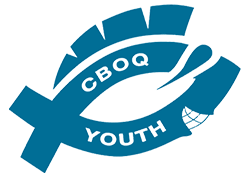COVID-19 LEARNINGS SUMMARY
Over the last few weeks, I had the privilege of engaging with 16 of our CBOQ youth leaders, uncovering what they’ve been doing and learning since March break when the pandemic lockdown started. Here’s what I took away from each leader:
- John: Creative outlets like puppets allow students to focus on a project with purpose and can bless the rest of the congregation.
- William: Managing larger groups online takes multiple “hosts” to handle different aspects of a Zoom meeting.
- Enoch: Give student leaders a chance to step up, because some will step up beyond your expectations.
- Jim: Having a central hub of information helps to streamline flow of communication.
- Sergio: Step into the new learning curves because they may present never-previously-considered ministry opportunities.
- Hannah: “Drive by drop-offs” can be a great tangible expression of care.
- Andre: Find the tool that fits your specific students well.
- Greg: Due diligence needs to be a high priority especially with the rapid changes in ministry right now.
- Jon: Have a mixture of both online ministry experiences and offline ones students can do by themselves (especially if they can be done outdoors).
- Mike: Online platforms now become our “open house” for others who normally aren’t part of a faith community to now engage with us.
- Darryl: Helping to connect back to thematic moments (e.g. his group met in a pizzeria regularly and now he delivers pizza to some of them) reinforces a sense of community for students.
- Jacklyn: This pandemic has exposed some vulnerabilities in students so it’s still vital for youth leaders to connect with their students in different ways to help address those vulnerabilities.
- Maxine and Dean: Youth have always gone counter to their parents. Since many parents are now connected deeply online (via social media, video conferencing, etc.), the youths’ reaction swings back to in-person interactions.
- Dinal: Allow your virtual presence to “fill in the gaps” well especially moving forward when more in-person opportunities become available.
- Curtis: You (the leader) were one of the primary reasons why a youth connects with a ministry … through that relationship with you. Allow who you are to be expressed in your communications.
- Marco: Providing materials/resources ahead of your meeting allows students (at least those who choose to do so) time to digest the information before meeting to study together.
What have you been learning through these interviews? (Feel free to share in the comments below.)




Leave A Comment